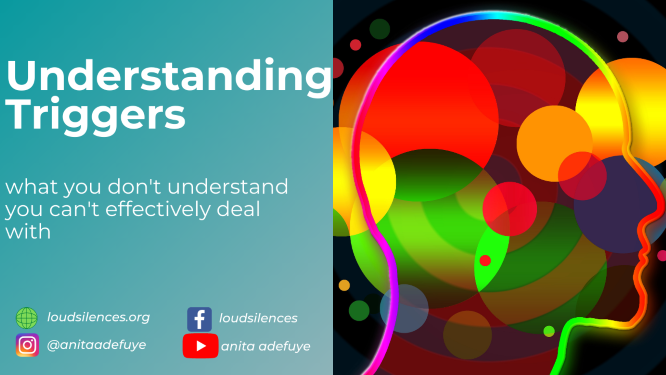Would you agree that a problem you don’t understand you cannot effectively deal with? Same holds true for understanding triggers.
As someone who experienced trauma, I had a lot of triggers. On my parents’ birthday or death anniversaries, I used to get depressed. Or when I spoke to certain people from my past, I would have flashbacks and panic attacks. And when I felt overwhelmed or had too much on my plate? I would feel extreme stress and getting out of bed became a hassle.
But at the time, I did not understand these things, hence, became a victim to them. There are some people who experience triggers but do not understand what it is or what is happening to them. I would know, seeing that was me, once. So, I do not want the same for my readers or someone else out there.
Today, I want to share with you what triggers are. When you understand those unsettling feelings, you are half-way to solving them, because you know what the issue is.
What is a Trigger?
If we want to keep it simple, trigger is simply anything, person or event that reminds you of the past. Much more than a reminder of the past, triggers are characterized by an uncomfortable and overwhelming feeling of sadness, stress, anxiety or panic. These feelings make it hard for the person to ‘be in the present’, almost as if they are ‘trapped’ elsewhere.
Types of Triggers
Triggers can be internal or external. These two types would often fall between the categories of environment, emotions or exposure. Some examples of internal triggers include:
- Fear/shame/guilt/anger
- Stress/depression/anxiety
- Pain/sadness/loneliness
- Memory to previous trauma
- Feeling overwhelmed/out of control
Examples of external triggers include:
- Anniversary dates of traumatic events
- Certain people
- Senses (touch, smell, sight, sound)
- Specific locations
- Movies
- Loud noises
- Poor physical health
- Other stressors such as financial issues, too many activities
These are not exhaustive lists. Triggers also differ for each person. If left unchecked, triggers can become more frequent and lead to addictive behaviour such as drinking, substance abuse and in some cases suicide. These are coping mechanisms, but bad ones that only lead to more problems.
Again, I would know because I had once tried to cope- but the wrong way. And yes, I ended up with addiction, negative behaviours and poor emotions. I even became suicidal. It didn’t have to be this way for me. Neither should it be for you.
The good news is, I am getting better and overtime, I have understood this idea of triggers and how to manage them. In the next write-up, I will share some of my coping mechanisms and how I have managed triggers. Have you ever been triggered and did not know? Would you like to share with me?

Leave a Reply